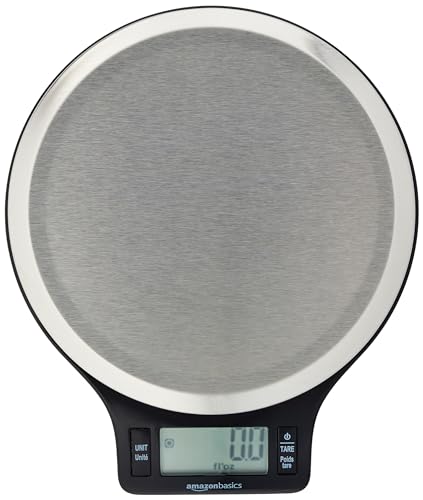In today’s fast-paced world, maintaining a balanced diet can feel like an uphill battle. Between work commitments, social engagements, and the allure of convenience foods, proper nutrition often takes a backseat. Yet, achieving balance in your diet is one of the most impactful steps you can take for your health, energy, and overall well-being. A balanced diet goes beyond fueling your body—it’s about nourishing your mind and supporting a vibrant, active life.
What is a Balanced Diet?
A balanced diet ensures your body receives a wide range of nutrients, each playing a crucial role in maintaining optimal health. Think of it as assembling a symphony—every element works together harmoniously to support bodily functions. A well-rounded diet includes:
- Carbohydrates for Energy: Your body’s primary energy source, found in whole grains, fruits, and vegetables. Choose complex carbs like brown rice, quinoa, and sweet potatoes over refined ones for sustained energy.
- Proteins for Repair and Growth: Include lean meat, fish, eggs, dairy, beans, lentils, and nuts. These are essential for maintaining and building your body’s tissues.
- Fats for Brain and Cell Health: Emphasize healthy fats such as those in avocados, nuts, seeds, fatty fish (like salmon), and olive oil. Limit trans fats and saturated fats often found in processed foods.
- Vitamins and Minerals: Vital for various bodily functions, from bone health to immunity. Incorporate a rainbow of fruits and vegetables, dairy, and fortified foods for a nutrient boost.
- Fiber for Digestive Health: Found in whole grains, legumes, fruits, and vegetables, fiber keeps your digestion running smoothly and promotes a healthy gut.
- Water: Often overlooked, water is critical for hydration, metabolism, and temperature regulation. Aim for at least 8 glasses a day, adjusting for activity levels and climate.
A balanced diet isn’t about restriction or deprivation—it’s about variety and moderation. By including a wide range of nutrients, you ensure your body has everything it needs to thrive.
Benefits of a Balanced Diet
Achieving a balanced diet provides a wealth of benefits for both physical and mental health:
- Boosts Energy Levels: Nutrient-dense foods provide lasting energy without the sugar crashes associated with processed snacks.
- Supports Immune Health: Vitamins like C and D, zinc, and antioxidants strengthen your immune system.
- Improves Digestion: A fiber-rich diet promotes gut health and prevents issues like constipation.
- Enhances Mental Well-Being: Omega-3s and vitamins support brain function, reduce stress, and combat mental fatigue.
- Aids Weight Management: Combining healthy eating with mindful portion sizes supports weight control effectively.
Practical Tips for Eating Balanced Meals in a Fast-Paced World
Balancing your diet doesn’t need to be a complex endeavor. Here are actionable tips for making healthy eating more achievable:
- Plan Your Meals: Meal prep at the start of the week to avoid last-minute unhealthy food choices. Use containers to portion out balanced meals featuring lean proteins, veggies, and whole grains.
- Snack Smart: Keep healthy snacks like nuts, fruit, or yogurt on hand to curb hunger and avoid processed convenience foods.
- Prioritize Breakfast: A nutrient-dense breakfast jumpstarts your metabolism and helps prevent overeating later. Opt for whole-grain toast with avocado or oatmeal topped with fruit.
- Use Smaller Plates: Mindful eating is easier with smaller portions. This approach helps prevent overeating without feeling deprived.
- Hydrate Consistently: Dehydration can mimic hunger, leading to unnecessary snacking. Keep a reusable water bottle nearby to encourage consistent hydration.
Real-Life Examples of Balanced Meals
To inspire readers, here are some meal ideas that are easy to prepare:
- Breakfast: Whole-grain oats topped with almond butter, fresh berries, and a drizzle of honey.
- Lunch: Grilled chicken salad with mixed greens, quinoa, avocado, and a light vinaigrette.
- Dinner: Baked salmon served with roasted sweet potatoes and steamed broccoli.
Budget-Friendly Tips
Eating healthy doesn’t have to break the bank. Try these cost-effective strategies:
- Buy Seasonal Produce: Seasonal fruits and vegetables are more affordable and flavorful.
- Purchase in Bulk: Stock up on whole grains, beans, and legumes, which are nutrient-dense and long-lasting.
- Opt for Frozen Produce: Frozen fruits and vegetables retain their nutrients and are often cheaper than fresh options.
When Diet Isn’t Enough: The Role of Supplements
Even with the best efforts, dietary intake sometimes falls short of providing all essential nutrients. Here are common supplements and their benefits:
- Vitamin D: Especially important in regions with limited sunlight. Supports bone health, immunity, and mood regulation.
- Omega-3 Fatty Acids: Found in fish oil or algae supplements, they promote heart health, cognitive function, and reduced inflammation.
- Iron: Essential for energy production and oxygen transport in the blood. Particularly beneficial for women, vegetarians, and those with anemia.
- Probiotics: These “good bacteria” improve gut health, enhance digestion, and boost immunity.
- Multivitamins: Can help cover minor deficiencies, particularly for those with restricted diets.
For more specific fitness or performance goals, advanced supplements like creatine (for muscle performance) or magnesium (for muscle recovery and better sleep) can be helpful.
Common Misconceptions About Balanced Diets
It’s easy to get caught up in diet myths. Let’s bust some common misconceptions:
- “Carbs Are Bad”: Complex carbs like whole grains and veggies are essential for energy. It’s refined carbs to limit.
- “Fats Make You Fat”: Healthy fats are crucial for brain function and cell health. Focus on sources like nuts, seeds, and avocados.
- “Supplements Can Replace Food”: Whole foods provide unique benefits that supplements cannot replicate, such as fiber and antioxidants.
- “Healthy Eating is Expensive”: Smart planning and buying seasonal produce can make nutritious meals budget-friendly.
Achieving Balance with Mindfulness
Balance isn’t about perfection—it’s about making consistent, sustainable choices. Start small:
- Add one extra serving of vegetables to your dinner.
- Swap sugary beverages for water.
- Experiment with new, healthy recipes to keep meals exciting.
Enhance Your Balanced Diet with These Tools
Equip yourself with tools to make healthy eating more convenient and enjoyable:
- Multi-Cooker: A versatile appliance that can steam, sauté, slow cook, and pressure cook, making it ideal for preparing a variety of nutritious meals with minimal effort.
- Meal Prep Containers: Perfect for organizing balanced meals with portion control, ensuring you have healthy options ready to go.
- Infused Water Bottle: Encourages hydration while allowing you to enjoy naturally flavored water with fruits, herbs, or vegetables.
- Blender: Essential for creating nutrient-packed smoothies with fruits, vegetables, and protein sources.
- Digital Kitchen Scale: A practical tool for accurately measuring portion sizes and maintaining mindful eating habits.
Final Thoughts
In a fast-paced world, achieving a balanced diet might feel challenging, but it’s one of the best investments you can make in your health. From boosting energy and immunity to enhancing mental clarity and mood, the benefits are undeniable. While supplements can support health and performance, whole, nutrient-rich foods should always be the foundation of your nutrition plan.
By planning ahead, embracing variety, and making small, mindful changes, you can create a balanced diet that fits seamlessly into your busy lifestyle. Remember, balance isn’t about restriction—it’s about nourishment, enjoyment, and sustainable well-being. Take it one meal at a time, and watch how these small steps lead to lasting health.
- REPLACES 12 COOKING TOOLS & APPLIANCES: This cooker replaces the need for a slow cooker, food warmer, nonstick pot, saut…
- SEAR & SAUTÉ DIRECTLY IN THE POT: Using the bottom heating elements, you are able to sear proteins and sauté vegetables …
- OVEN SAFE TO 500°F: Removable cooking pot is oven safe up to 500°F, so you can finish your meal in the oven for a crispy…
- GREAT SIZE: Our 10 glass sets (10 lids and 10 containers) size: 7.8(inch)x5.7(inch)x2.5(inch),Capacity: 860ml (30oz). It…
- PREMIUM BOROSILICATE GLASS:Our glass storage containers are made from premium borosilicate glass, which is stronger than…
- AIRTIGHT SMART LOCKING LIDS: MCIRCO Glass food storage containers use snap lock lids that comes with silicone seals to m…
- PREMIUM QUALITY – Our patent pending 32 oz, infuser water bottle is made from double walled 18/8 stainless steel and BPA…
- SMOOTH, REFRESHING FLAVOR – Featuring a large fruit infuser design, our infuser water bottle keeps your favorite fruits,…
- CONFIDENCE: Durable silicone O-rings make our infusion water bottles 100% leak-proof. Combining that with the soft feel,…
- Included: (1) 250W motor base, (1) cross-blade, (1) tall cup, (1) short cup, (1) party mug, (2) lip rings, (2) Stay-Fres…
- The magic bullet chops, mixes, blends, whips, grinds and more. Cups are made out of high-impact plastic.
- Effortlessly create your favorite meals and snacks like smoothies, omelets, sauces and dips. 250 watts high-torque power…
- Digital kitchen scale with food-safe, BPA-free plastic components
- Stainless steel platform with wide LCD screen
- Weighs up to 11 pounds (2 grams minimum, up to about 5000 grams); displays results in pounds, ounces, grams, fluid ounce…















